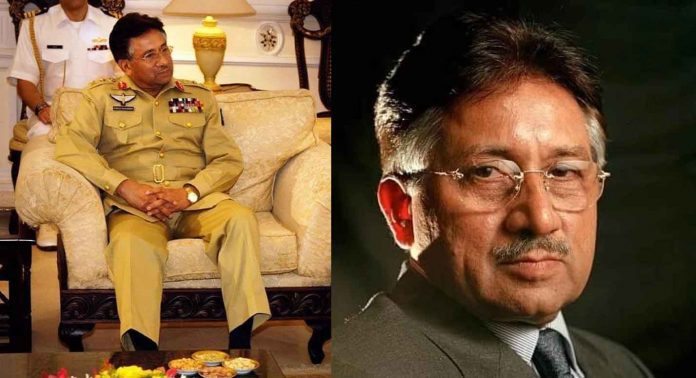General (retd) Pervez Musharraf, who had lived in Dubai since 2016, died Sunday.
His family said the 79-year-old former president and army leader had amyloidosis, a rare ailment caused by amyloid protein buildup in organs and tissues. Amyloid deposits can impair organ and tissue function.
Pervez Musharraf’s All Pakistan Muslim League (APML) revealed his unusual disease in 2018.
His widow, son, and daughter mourned. His family verified his interment in Pakistan.
Islamabad or Karachi are potential locations for the burial
Sources say a chartered plane will fly the deceased and his family from Islamabad to Dubai on Monday.
The country’s top leadership and concerned officials are allegedly contacting the family for funeral preparations. The unhappy family would announce the specifics after deciding.
The Chairman of the Joint Chiefs of Staff Committee (CJCSC) and the Service Chiefs expressed their deepest sympathies.
“May Allah bless the deceased soul and provide courage to the grieving family,” said the military’s media wing, ISPR.
Military strongman
New Delhi was Musharraf’s birthplace. After Pakistan’s 1947 independence, Musharraf’s family migrated to Karachi. Accountant Syed Musharrafuddin was his father.
Pervez Musharraf graduated from the Army Staff and Command College in Quetta. He then joined the Pakistan Army in 1964 and fought in the 1965 and 1971 Pak-India wars.
Said Nazir, a retired Pakistan Army brigadier, told Anadolu Agency that Musharraf was the “primary architect” of the 1999 Pakistan-India Kargil War. Months after Nawaz Sharif and Atal Bihari Vajpayee signed a peace deal in Lahore, the conflict began.
After Nawaz Sharif tried to fire him as army head, Pervez Musharraf declared martial law in 1999 and became Chief Executive. He overthrew Rafiq Tarar and declared himself president in 2002.
Pakistan’s four-star general was president from 2001 until 2008. He ruled the country after the 9/11 attacks and quickly allied with Washington during its military operation in Afghanistan. Despite three assassination attempts, he supervised economic development for more than seven years. Despite being a military dictator, he instituted major changes, including special seats for women and minorities, a powerful local government system, and a flood of news channels in Pakistan.
Democracy maintained these reforms
His easygoing charm failed to disguise the blurring of the state-army divide, and he fell out of favor after trying to dismiss then-chief judge Iftikhar Chaudhry.
The top judge’s challenge to Pervez Musharraf’s dual role as president and army chief sparked the “Lawyers Movement” against his administration. After large rallies returned Chaudhry to power on July 20, 2007, Musharraf instituted an emergency and suspended the Pakistani Constitution a few months later.
After opposition leader Benazir Bhutto’s December 2007 assassination, the public mood worsened further, and his supporters’ crushing 2008 election losses left him alone.
On November 3, 2007, Pervez Musharraf suspended the Constitution. A special court sentenced the ex-military strongman to death in absentia for high treason in December 2019.
